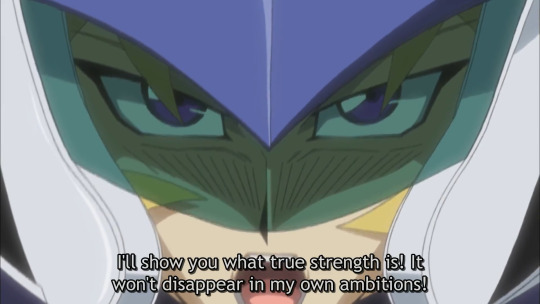#Episode 84
Text


[episode 84 - Ski Lodge Murder Case]
#i love this artstyle#he looks like hes wearing eyeliner#detective conan#episode 84#Ski Lodge Murder Case#manga based#1997#1-100#edogawa conan#mouri ran#suzuki sonoko#winter episode#blue jacket#winter jacket#detco hell original#yellow jacket#striped jacket#winter hat#striped hat#blue hat#yellow hat#cone hat
401 notes
·
View notes
Text
QT: Yeah. No abortions when you’re mormon. Frowned upon.
Ted: Wow.
Ted: Do you know what this reminds me of?
[Static]
QT: Scott, cut it out.
Ted: Cut it out.
QT: Sorry guys, we’re back. Ted just showed his balls.
Ted: Yeah, sorry, I showed my balls and my quivering member and my— and my flower. All of them, I’ve got them all.
Schlatt: You don’t have a flower. You don’t have them all.
QT: Don’t pretend like you have a flower.
Schlatt: You don’t have a flower. How dare you.
Ted: I’m a beautiful little flower.
Schlatt: How dare you. How dare you. To lie like that.
83 notes
·
View notes
Text
MIKEY: Well, at least you got Ty before Ty could get you. He’s dead?
MIKE: Look at him. He’s more hole than Ty at this point.
9 notes
·
View notes
Text

4 notes
·
View notes
Text





Feeling an immediate urge to skip to the Red Nova episodes because like. Pinch me or something, but I feel like Jack almost completely contradicts ALL these statements in those later episodes. Am I going insane????
#yugioh 5ds#jack atlas#if anyone knows what he says during the red nova duel PLEASE#because like. if they had STUCK with this characterisation of jack#I would be so happy actually#but if memory serves right they basically upend everything said here later#feeling BEWILDERED r/n#orchid watches 5ds (again)#screencaps#episode 84
17 notes
·
View notes
Text






bonus: birbs

#one piece#chopper#heather watches one piece#episode 84#still got a whole bunch of possible gifs to grab from last nights episodes#but for now have some chopper
5 notes
·
View notes
Text
Martin is doing the readings now? That's fun. Nice to see he still has faith that Jon is innocent.
Oh, Melanie is back... and she's been shot. And she still thinks there's two Sasha's. Oh shit, is she actually getting a job? I knew it, I knew she's be good for the Archive!
Wait, does Elias know Martin lied to get his position? Maybe he really does have the ability to read minds. But if that's the case, why did he get the job at all? Suspicious.
And why is Martin mad about Melanie getting a job? Just worried she might replace Jon maybe?
2 notes
·
View notes
Text
I FUCKING FOUND IT PEACE AND LOVE AND LIGHT ON THE PLANET EARTH
2 notes
·
View notes
Text

[Image Description:
A mockup of a Twitch stream with Scarecrow, a young white man with brown hair, purple eyes, and a large grey and green coat, superimposed in front of the "game" screen in the style of a V-Tuber. The game depicted is a screenshot of Cafe Enchante featuring the character Il Fado De Rie, looking distraught at someone standing in front of him but out of view of the viewer. In the top left corner, there is a subscription notification featuring a glass jar full of money, with the word, "RESPECT" written on tape around the center. The notification reads, "xXTHECLOSERXx just subscribed for 1 month!" On the right hand side is a mockup of a Twitch chat overlay, which reads as follows:
"Lukalalee: this guy sound familiar to any1 else????
Osiris22: (Three emotes of a crying cat giving a thumbs up)
NoGuilt420: ur laundry is done get it out of the dryer
Kryl0v: I don't recognize his voice, myself.
gingersux69: ADAM KRYLOV??????
xXButterflyEffectXx: RIGHT LUKA I'VE BEEN THINKING HE SOUNDS LIKE SOMEONE I KNOW
gingersux69: LIKE FROM THE NEWS????
TimesNewRoman: Scarecrow may I have my mod status back, I would like to ban someone.
Prsnbrk: thought this game was about coffee
CarmenSiegdiego: ATTENTION ALL HALLOWEEN HOES ITS TIME TO GET SPOOKY YOU KNOW WHAT THAT MEANS GET FISTED BY A SKELETON" END ID.]
[Originally posted to Twitter on 11/09/2022]
Evaludate Episode 84: “The Drowning Part (Scarecrow of Bustafellows, part 3)”
Summary:
Today on Evaludate, Scarecrow experiences a Hallmark Movie Christmas, Shu displays terrible trigger discipline and is also just very rude, Bustafellows flounders around with the criminal justice system AND mental health, and the truth of Madelyn's Official Bustafellows Kin-Assignment (thalassophobia) finally rears its head.
Content Warnings:
As a general warning, this episode contains a lot of discussion of drowning, strangulation, and Bustafellows' handling of marginalized mental health conditions such as DID. Descriptions of specific incidents have been time-stamped, but generalized discussion has not been.
Gun violence: (16:28 - 16:49)
Drowning: (32:00 - 32:19, 40:16 - 42:00)
Strangling: (42:23 - 42:41)
13 notes
·
View notes
Text



did not even get his own chair....
[episode 84 - Ski Lodge Murder Case]
#detective conan#episode 84#Ski Lodge Murder Case#manga based#1997#1-100#edogawa conan#mouri ran#suzuki sonoko#winter episode#blue jacket#winter jacket#detco hell original
77 notes
·
View notes
Text
Ayyyy! Martin is starting to record archive stuff! I'm proud ^^
2 notes
·
View notes
Text
Transcript Episode 84: Look, it's deixis, an episode about pointing!
This is a transcript for Lingthusiasm episode ‘Look, it's deixis, an episode about pointing!’. It’s been lightly edited for readability. Listen to the episode here or wherever you get your podcasts. Links to studies mentioned and further reading can be found on the episode show notes page.
[Music]
Gretchen: Welcome to Lingthusiasm, a podcast that’s enthusiastic about linguistics! I’m Gretchen McCulloch.
Lauren: I’m Lauren Gawne. Today, we’re getting enthusiastic about pointing. But first, this episode is brought to you by all of the fantastic people who have supported the podcast by becoming patrons or buying merch over the years. We don’t work with a big production company or anything; it’s just us. We’re really able to just keep doing the show because of your support both in recommending the show to other people and when you’re able to help us financially.
Gretchen: I was pretty worried when we were first trying to figure out how to keep Lingthusiasm sustainable. Like, were we gonna have to run ads for some sketchy, learn-a-language-overnight type service?
Lauren: We get some interesting pitches.
Gretchen: Oh, we sure do. I mean, I don’t think the language learning platforms are all bad. I just wouldn’t feel comfortable endorsing one without trying it out for hundreds of hours, at which point, that’s not really very cost effective. It’s easier to just say no. So if you like that Lingthusiasm exists, and you wanna help us continue to exist for many years in the future, we’d really appreciate your support – especially on Patreon.
Lauren: Our most recent bonus episode for patrons was an interview with Martha Tsutsui-Billins – a name you might recognise from the credits of this show. We chatted about her work on politeness in Amami, fieldwork in Japan, and her podcast, Field Notes.
Gretchen: To listen to this bonus episode, many other bonuses, and to help keep the show running ad-free, go to patreon.com/lingthusiasm.
[Music]
Lauren: “Hey, look! This is a podcast.”
Gretchen: “Yes, THIS episode, right here, now.” Lauren, no one can see that you’re pointing right now.
Lauren: Hm, yeah, it’s a pity because this is one of my favourite types of episodes where we’re gonna talk about gesture in an audio-only format.
Gretchen: You know, you really picked a very interesting combination of being a gesture specialist in so far as your research goes and also having a podcast which is audio-only.
Lauren: That’s okay because one of my favourite things to do is explain gestures that we do all the time in a whole lot of detail because it makes you realise how impressive they are. Pointing is one of my favourites of these.
Gretchen: So, O Pointing Expert, tell us about pointing.
Lauren: Pointing is a very human activity where we use a part of our body, and we project out from our body this invisible line towards something. Another human is able to look at that point, and look at that invisible line, and figure out what our invisible line is pointing at and figure out that we’re looking at the same thing. We do this without thinking about it all the time.
Gretchen: We humans do this invisible string, invisible line thing that can be following a finger or the whole hand, or an eye gaze, or several things like that. Do animals do this?
Lauren: It depends on what animals we’re talking about. Apes, our nearest relations, they gesture, but they don’t point, and they don’t seem to get the idea of pointing.
Gretchen: If you try to point to something, a gorilla or a chimpanzee or a bonobo or something is gonna be like, “I don’t know. I’m just gonna look at your finger,” or whatever.
Lauren: Yeah. There’s hundreds of hours of chimpanzee gesture studies and gorilla gesture studies, and they don’t point. It’s not part of their communicative collection of skills. But dogs are really good at following human points.
Gretchen: Dogs don’t necessarily point themselves.
Lauren: They don’t necessarily point themselves.
Gretchen: But if you point to something, they can follow that. I feel like I’ve seen humans try to point at a treat or something that’s on the ground for a dog, and the dog is just sitting there looking at your finger being like, “I don’t know what you want from me.” Finally, you tap your foot by the treat, and the dog’s like, “Oh, this, okay.” But you’re saying that maybe I should’ve just trained this dog better.
Lauren: Let me clarify. Some dogs seem to do it with very little training. Some dogs seem to take more training but can follow a point – compared to wolves which are not domesticated and don’t engage with pointing. There is a research paper that says that cats don’t engage with pointing either.
Gretchen: Do cats just not engage with pointing, or do they not want to engage with pointing that they understand perfectly well?
Lauren: The paper doesn’t make clear –
Gretchen: [Laughs] We don’t know. They’re cats.
Lauren: We can’t know what happens in the minds of cats. I have had students, when I’ve talked about non-humans and pointing, say that their cat can follow pointing. This is perhaps an under-researched area, and there may be cats that have this skill. Maybe all cats have this skill and have just decided to withhold it from us. But beyond humans, pointing is not necessarily a skill that other animals have.
Gretchen: That is kind of fascinating because I think of it as pretty basic. A lot of babies can point before they can talk.
Lauren: Mm-hm. Pointing is normally a pathway to other forms of language and communication.
Gretchen: You can train animals to respond to particular words, but it’s harder to train them to respond to points.
Lauren: It’s because of that magic invisible line between – they just look at your finger. In fact, it’s weird that we don’t immediately just look at the end of someone’s finger and instead we look at some invisible line shooting off.
Gretchen: You can’t see me right now, but I have my hand up, and I’m pointing an invisible finger, and there it is. You said, “invisible finger.” Sometimes, pointing happens with the index finger. Sometimes, it happens with the middle finger, with the whole hand. I guess you could point with your elbow if your hands were occupied. Or maybe you could point with your thumb if you’re pointing back in that direction. Is there research on pointing with various parts of the body?
Lauren: Absolutely. We talk about pointing with the finger and particularly the index finger as the most common. When we were pointing – that you couldn’t see at the top of the episode – that might have been the kind of pointing you were thinking of, but it’s by no means the only way that pointing happens. There are different ways of pointing that are easier in communication. You mentioned if your hands are full, you might point with your elbow or your foot or a little chin flick. When we’re pointing at something that’s not a specific thing but maybe like a group of trees or somewhere far away, we might use an open hand rather than the more narrow line of a specific finger.
Gretchen: That’s true. If you’re trying to create an invisible web or an invisible waft of string – I dunno how the metaphor goes – trying to paint with a broad, invisible brush.
Lauren: If we’re pointing to someone or something behind us, it’s often easier to just do a little flick of the thumb backwards. It’s just the shape of the hand makes that easier to do. We don’t think of that as strange.
Gretchen: I’m currently pointing behind me with my index finger. It is very awkward. I hope everyone who’s listening is also trying out these points.
Lauren: There’s this really wonderful corpus study from Kensy Cooperrider – who a lot of this work comes from because he did his entire PhD thesis on pointing – where if you’re pointing towards yourself as a physical thing, you will use your index finger, but if you’re talking about yourself as an identity, as a human, embodied, living creature with a mind, the mental you, you’re more likely to do it with an open hand.
Gretchen: Interesting. I was feeling myself doing that as you were saying it.
Lauren: Sometimes, the variation is what’s easiest for your hands to do, and sometimes, it does convey something slightly different. Like, I’m pointing at one thing or many things in the distance.
Gretchen: That makes sense.
Lauren: Sometimes, the difference is depending on the culture that you’re in and the cultural practices you have. Middle finger pointing – a lot of kids will point with their middle finger just because they’re figuring out manual dexterity. It’s hard to wiggle your fingers around, and it is very funny, but it is also a common way of pointing in some cultures. There’s some really nice work from Central Australia that people will default use their middle finger rather than their index finger.
Gretchen: So, these would be cultures where the middle finger doesn’t have this taboo, obscene meaning that it has for me and a lot of English speakers.
Lauren: Indeed.
Gretchen: Because that’s certainly something that overrides the pointing meaning. I have seen some English speakers point with their middle finger, and I’m always giggling, but, yeah, people do do it sometimes.
Lauren: Once you notice it, you realise it is more common. We have this idea of default ways of pointing, and things are actually a lot more varied. Also, eye pointing. Again, Kensy Cooperrider has this really nice paper on Yupno from Papua New Guinea where people will do this really prominent gaze and pop of their eyes towards something as a way of pointing. Lip pointing is a thing that we see whether it’s the lower lip or both lips purse outwards. In Southeast Asia we see this, across Africa. There’s a really cute scene in Encanto, which is set in Columbia, where Mirabel points with her lips towards a gift she wants to give her little cousin. It’s this really sweet moment and a really nice culturally appropriate use of pointing.
Gretchen: That’s great. I think I could do eye pointing especially if I was in a public space and trying to gesture to “Oh, this person has a really cool hat on” or something, and I didn’t wanna put out my full hand and be like, “Oh my god, check out that person’s hat!” I’m gonna be like, “Look, look behind you. There’s a person with a cool hat.” But I don’t think I have lip pointing for myself.
Lauren: Yeah. Because we get this cultural variation. That’s really interesting to see across the world. We also have variation in what it is not appropriate to point at or how it’s not appropriate to point. There’s this amazing study that Robert Blust did over the years of collecting examples of cultures where it’s rude to point at rainbows. He collected 124 different examples of cultures where it is taboo to point at a rainbow.
Gretchen: It’s bad luck or something to be like, “Oh my god, look, a rainbow,” pointing at it?
Lauren: Exactly. These cultures are so spread out around the world that it’s not likely to be something that was a recent cultural story that they all share. It’s from all corners of the world.
Gretchen: It may be really ancient or something. That’s fascinating. I definitely don’t have any taboos about pointing to rainbows. I probably always point at a rainbow when I see it because I’m like, “Oh, great, a rainbow, look!”
Lauren: I feel more compelled to point because it’s so exciting to see one. You may have a taboo around pointing at people.
Gretchen: Hmm, I mean, I guess, in some contexts.
Lauren: Given that you were just doing a low-key eye point at someone’s cool hat. You probably wouldn’t do a big index finger point at someone in public and be like, “Cool hat!”
Gretchen: I feel like that’s especially if there’s a kid, and they’re commenting on some aspect of the body. They’d be like, “Oh my god, Mommy, look at that lady’s blue hair!” And you’re like, “Oh, I’m so sorry. My kid should not be commenting on you.”
Lauren: I can just hear the parent voice that’s like, “Don’t point. It’s rude to point.” This is clearly a taboo I have been taught.
Gretchen: I don’t know that I’ve been taught so much it’s rude to point as I’ve been taught it’s rude to comment on strangers’ appearances in public in a way that they can hear you, but I think it comes down to a similar type of thing.
Lauren: Yeah. Because an index finger point, in particular, is really prominent and visible and very obvious what’s happening, and so you can see how that fits in with that taboo. It says a lot about the name “index finger” as a term for that finger that we have between our thumb and our middle finger.
Gretchen: So, that “-dex” in “index” is from a Greek word meaning “pointing” or “showing.”
Lauren: Which is why an index in the back of a book points back to other bits of the book that you might wanna read on that topic or an economic index points to something that’s happening in the economy.
Gretchen: You sometimes get, especially in older texts, this drawn pointing index finger in the side of the book which can point to particular passages and say, “Oh, this is particularly important” or “This is interesting.” People would draw them in by hand or they could be somewhere to index particular things. It’s also related to a word that’s used for various types of pointing things – both gestural pointing and grammatical pointing – in linguistics.
Lauren: We’ve called them “pointing gestures” so far, but the more technical term for them is “deictic gestures.”
Gretchen: “Deixis” is one of those words that, at the same time, it’s so useful, and it’s so cool, and it’s so hard to say, and it’s so hard to spell.
Lauren: I have genuinely double-checked the spelling several times even just in the preparation of this show because you have “deixis,” which is D-E-I-X-I-S, and then “deictic,” which is related, is D-E-I-C-T-I-C.
Gretchen: So, you could say “a deictic word” or a “deictic gesture.” That’s just the adjective form. That one’s got a C instead of an X. I hear people say /daɪɪksis/ /dɛɪksis/ /daɪksis/. There’s all these different ways of saying it. It’s not spelled like the “-dex” in “index.” There’s an extra I in there. It’s so useful, and there’re so many things that are deictic, and I wanna talk about it all the time, and yet, it’s this word that feels very complicated. Hopefully, by saying it a lot in this episode, we can point a path toward it being more useable in the future, maybe.
Lauren: Excellent. We do tend to use “pointing” and “deixis” interchangeably, but I guess “deixis” is the academic term for pointing.
Gretchen: Right. It’s useful to have an academic term because there are a lot of grammatical things that are deictic that we don’t necessarily think of as being literal pointing. One example is that pronouns are all deictic. When I say “I,” I’m referring to “Gretchen.” I’m pointing to the “I” that is me that is Gretchen.
Lauren: That’s really interesting because when I use “I,” I use it to point to “Lauren.”
Gretchen: Right. Same thing when I say “you” – well, in this context, I’m referring to “you,” Lauren, but in fact, I do talk to other people also at other times, and sometimes “you” refers to other people, also.
Lauren: Interesting. Because I use “you” to refer to everyone who’s listening to this episode.
Gretchen: Well, I can also use “you” for that. [Laughs] And same thing if I’m saying, “Lauren, my co-host, she’s done this,” or like, “We, the co-hosts of Lingthusiasm,” all pronouns refer to things and people that are dependent on context. They’re all pointing to someone or something that’s in a particular space.
Lauren: We have a whole episode on pronouns because unpacking what’s happening with these little words that are pointing to different people and different things at any given time, there’s a lot happening there that’s really interesting.
Gretchen: Sign languages also use a specific version of pointing when it comes to pronouns, right?
Lauren: Yeah, they make use of the fact that they are visual languages, and they make use of this human tendency to point. A lot of sign languages you’ll see their pronoun system, the “I” and the “you” and the “we,” is done through a kind of pointing. For example, Auslan and BSL, as the sign languages I know best, will use an index finger point. But even though it looks like an English pointing gesture that you’ll commonly use as an English speaker, there are differences. There’s this really nice study that a group of sign language researchers led by Jordan Fenlon and a bunch of gesture researchers – again, Kensy Cooperrider’s name comes up – worked together to look at signed and spoken uses of pointing. You see these really consistent differences as well as these similarities. So, even though you see a lot of index pointing in both, for a signed language, the index finger tends to get used a lot more consistently. We talked before about how, as an English speaker, you might use a thumb to point behind you or an open hand. In a signed language, because it’s a pronoun and it’s part of the grammar, the form is much more consistent in how it’s used, but it’s also a little bit reduced. The index finger isn’t always as extended. It’s not held for as long. It’s much more reduced because it is a part of the grammar that people are using all the time. It’s this really nice thing that shows pointing and signed pronouns use the same resource but in slightly different ways.
Gretchen: My favourite thing about pointing and signed pronouns is from a study in American Sign Language which studied these two d/Deaf children of d/Deaf parents. The study’s from Laura Petitto. The kids are pointing to persons, objects, locations, all over the place, but then they go through this process where they’re requiring specifically the pronominal points where you’re pointing to yourself to mean “me,” or you’re pointing to someone else to mean “you.” The kids, like how kids who are acquiring English and lots of other languages, sometimes acquire pronouns backwards.
Lauren: Yes.
Gretchen: Sometimes, you’ll get a kid who’s like, “You’re tired,” and the kid’ll be like, “Yes, you’re tired,” and they actually mean that “Me, I’m tired.” They’re tired.
Lauren: They haven’t figured out that “I” means “Lauren” for me and “Gretchen” for you. They just think “you” is the reference for them.
Gretchen: Right. It makes a lot of sense because they don’t have that context to – no one is actually saying, “Okay, the thing you need to say is ‘I’m tired’.” You just have to infer the –
Lauren: They haven’t figured out the pointing element of the pronouns.
Gretchen: The cool thing about this ASL study is that the kids do this same “you” pointing reversal. They’re making the pointing “you” to refer to themselves.
Lauren: That is super nifty.
Gretchen: Isn’t that cute?
Lauren: I love that the research you cite also reinforces that pointing in signed languages is much more grammatical and like pronouns, but it is heaps cuter than the example that I had.
Gretchen: It’s very cute, but exactly, it reinforces how it’s really grammaticalised because they’re aware that when they’re pointing to the dog or the cake or something that they’re pointing to that object, but they interpret the “you” point as grammaticalised to refer to themselves even though it’s literally not pointing to themselves.
Lauren: Huh, excellent. I’m so delighted there’s a parallel.
Gretchen: It’s the same ages as when hearing kids get this correct – around 25-27 months.
Lauren: Because, again, this deictic function that feels really simple, and we think of pronouns as a really basic thing that you acquire early in any language that you learn, is actually something that is, in terms of thinking and cognition, really, really hard.
Gretchen: Right, exactly. Another really common type of deictic is words like “this” and “that” and “here” and “there.” If I say something like, “Put that over there.”
Lauren: Uh, put what over where?
Gretchen: Exactly. Because these are contextual, you can’t see what I’m pointing at. You can’t see that I want you to pass me the cake.
Lauren: Also, I’m not putting down this cup of tea quite yet.
Gretchen: But I want this! And this highlights pronouns are basically inherently deictic, but there’re lots of other categories of words that can be used deicticly or not. If we have an example like, “I love this city.”
Lauren: I’m gonna assume you mean the city that you are currently in, which is actually not the same city that I’m in.
Gretchen: Exactly. This requires knowledge of my current location. If I say, “I went to this city one time, and I saw this amazing cat” or something, that’s probably referring to a specific city, but it’s not identifying it anywhere there. It’s more like, “I went to a city,” which doesn’t identify it contextually.
Lauren: In fact, I assume it’s not the city you’re currently in.
Gretchen: In fact, it’s true. If I’m telling an anecdote that way, “I went to this city one time,” doesn’t mean I went to THIS city one time.
Lauren: It would be very weird.
Gretchen: English has basically two levels of closeness. We have “this” and “here,” which is something that’s close to the speaker, and we have “that” and “there,” which is further from the speaker. But we used to have “yon” and “yonder.”
Lauren: Indeed, we did.
Gretchen: “Peasant, fetch me yon book, and carry it yonder!” I feel like it’s sort of olde-y time-y.
Lauren: It definitely does sound olde-y time-y, and it means something that’s not as close as “here” and not as far as “there.”
Gretchen: No, it’s further. It means like, “over there.”
Lauren: Oh, okay. It’s so old I don’t even have a sense of what it means.
Gretchen: Right. “Yon” and “yonder” is like, “over there,” which we still have, it just takes two words. But there’re some languages like Spanish has “esta” or “esto,” which is close by, “esa,” which is a medium distance – sometimes the middle one is also used for stuff that’s near the hearer or near the recipient – and “aquel, aquella,” which is like, “over there,” sometimes also used for something that’s neither close to the speaker nor the hearer.
Lauren: Huh, useful. I love having more distinctions than “here” and “there.” I love it when I learn a language that has that.
Gretchen: There’s lots of these languages. Serbo-Croation has it – Korean, Japanese – Thai has it. Turkish has this three-way distinction.
Lauren: People from all kinds of language families realising you need more than a “here” and a “there.”
Gretchen: Right. And then there’re a few languages that have even more fancy systems.
Lauren: Ooo, excellent.
Gretchen: Sinhala, which is an Indic language spoken in Sri Lanka, it has a four-way system – near the speaker, near the addressee, close to a third person (visible), and then far from everybody (not visible). I dunno what you do with a complicated situation where you have something that’s far from everybody, but it’s still visible, or visible but close to – you know.
Lauren: I’m sure someone has a very good experiment you could use to tease out those distinctions.
Gretchen: But there is a four-way distinction that gets further and further away. Then Malagasy, which is an Austronesian language spoken in Madagascar, has a seven degree of distance system.
Lauren: Ooo, how satisfying.
Gretchen: Plus, two degrees of visibility.
Lauren: So good. Do you think it has anything to do with the fact that Malagasy is right near Africa, but it’s actually an Austronesian language, most of which is spoken in Asia? Do you think that they just needed all those distances to account for how far –
Gretchen: To refer to their distant cousins over in the Philippines and Indonesia and places like that?
Lauren: Yeah. [Laughs] I do not think this hypothesis is gonna hold up.
Gretchen: I don’t think so. But you know, they did have a very sophisticated navigational system by the stars. I don’t think this is also a reason why.
Lauren: I think Austronesian languages do have a good tendency towards nice systems of distance like this.
Gretchen: There are tons of Austronesian languages, and it seems like a lot of them have relatively interesting deixis systems which have lots of different levels. That’s neat.
Lauren: Excellent. Spatial systems are really handy because they show us something important about deixis, and it’s where the pointing is happening from. For something like Sinhala, the fact that you have something that is the speaker versus something near the addressee or near to a third person, it means that the centre of where the deixis is happening from is different in all of those contexts.
Gretchen: This shows up a lot when we’re talking about prepositions and how they’re deictic. A lot of prepositions like “near” and “far” – so if I say, “Oh, yeah, I’m going to go get some bubble tea. It’s right nearby,” you’re like, “Gretchen, that’s not near me at all. I live on the other side of the world from you.”
Lauren: That’s because we’re treating you as the deictic centre, and Canada is a long way from Australia. The deictic centre shifts depending on who is speaking because that’s how pointing works.
Gretchen: And if we’re saying something like “across,” like if I say, “The library is across the street,” by default that means it’s across the street from me. But I could also shift, if I’m talking about maybe we’re gonna make plans later, and I say, “Well, it’s great because the library is just across the street from the restaurant,” and then we’re shifting the deictic centre to the restaurant even if I’m currently on the same side of the library or something like that.
Lauren: Again, once you begin to pull apart what’s happening with deixis, you realise just how much brain space is going to making sure that you understand what’s being pointed to, what the deictic centre is.
Gretchen: Yeah. What’s being pointed to and from where, which is the deictic centre. Or if you say something like, “The dog is in front of the house,” now you’re taking the perspective of the house. Houses seem to have an intrinsic front to them, or at least we feel like a house has a front to it. So, the house is the deictic centre. But if I say, “The dog’s in front of the tree,” and trees don’t really have an intrinsic front, now I’m probably referring to my position in terms of someone who’s looking at the dog.
Lauren: The problem is that trees don’t have front doors, and that is a problem with trees. [Laughter]
Gretchen: Okay. There are some verbs that are deictic – just to keep going down our list of parts of speech.
Lauren: Okay, yeah. Lots of different parts of speech can be deictic. What are some deictic verbs?
Gretchen: The biggest ones are “go” and “come.” If I say, “I’m going to Australia,” that’s my deictic centre in Canada where I’m like, “This is a thing that I am heading away from my perspective.” But I could also say, “I’m coming to visit you in Australia,” and then I’m taking on your perspective and saying, “Oh, from your perspective it would be ‘coming,’ and therefore, I can say it in that way.”
Lauren: That’s true.
Gretchen: Similarly, with “I’m coming home now,” I’m projecting my deictic centre onto whoever I’m talking to.
Lauren: Oh, “home” is a good one because “home” varies depending on who is talking and also the size of what is “home.” If I was meeting someone at a bubble tea place, saying, “I’m going home now” would mean to my specific residential address. But if I had come to Canada and was going home, “home” would be Melbourne or the whole of Australia.
Gretchen: Right. When you’re travelling, sometimes your friend’s house that you’re staying with or your hotel room or something, you’re like, “Oh, I’m gonna go home for a nap,” and that can just mean wherever you’re sleeping that night.
Lauren: You’re going all the way back to Canada just for a nap, and then coming back to Australia in the morning? Wow. That is dedication. Yeah, that is true. “Home” is really quite portable sometimes.
Gretchen: I also really like when you hear people’s voicemail. I don’t know how often people are leaving voicemail messages anymore, but on their voicemail, they’ll often say something like, “I’m not here. Please leave a message.” But sort of by definition, anywhere that you are currently right now is “here” for you. So, saying, “I’m not here,” means “I won’t be here when you’re calling me to have received this because, definitionally, if were here, I would’ve picked up, but because I haven’t picked up, I’m not here at the time that you’re listening to it, even though wherever I am is ‘here’ when you’re saying it.” I can see why people don’t actually leave this as their voicemail message recording.
Lauren: I feel like this almost made sense back in the old days where you physically recorded onto a tape that had a specific location, but now people’s voicemail is connected to an inbox on the internet on a mobile phone. What even is “here”?
Gretchen: What is “here”? I don’t know, but you can also use deixis to talk about time.
Lauren: What even is time? I was thinking about this at the top of the episode because we always say, “Today, we’re talking about,” and indeed, we are talking about this “today,” the day that we’re recording this, and you are –
Gretchen: Definitionally, at the moment of recording, that moment is “today,” yes.
Lauren: You are absolutely listening to this “today” as it’s being listened to or that you’re reading it as a transcript. But they’re two different “todays.”
Gretchen: They are two different “todays.” I was very conscious about this when I was writing Because Internet, which is a book that I wrote about language on the internet, because I’d read a lot of other books and articles about things to do with the internet, and a lot of them would say things like “now” or “currently” or “modern.” So, you read something like, “MySpace is very cool now,” and you flip to the copyright page, and you go, “Ah, this came out in 2006.”
Lauren: Oh, wow. Hmm, yes.
Gretchen: I was trying to be more specific and say, “This is cool in the early 21st Century” or “This is cool in the 2010s” or “This is what people were doing in the ’90s” or various eras rather than saying “now” because I was very conscious that people would, hopefully, read this book from the future and go, “Oh, no, we don’t do that anymore,” and I wouldn’t be able to predict which of those things would be the case.
Lauren: Very aware of what “now” means. Thinking of the internet also reminds me of just how terrible it was when MySpace was cool now because MySpace – the “my” in “MySpace” is a deictic pronoun. You’d have to be like, “Uh, follow my MySpace” or “What’s your MySpace?” “Do you have a YourSpace?” It was very tough.
Gretchen: There’s a lot of these that are named “My Something,” and you can see how you would do this as a user design, and yet, as an actual user, you’re like, “No, this is very frustrating that I have ‘My Courses’ or ‘My Account’ or ‘My Network’,” and you’re like, “Okay, log on to your ‘My Network’.”
Lauren: I feel like I’ve seen both things like “My bank” and “Your bank” because it depends on how the people setting up and naming the system thought about it while they were creating it. They are terrible to call up and ask for help with. It’s like, “I’m having trouble logging into my ‘Your Bank’.”
Gretchen: It’s like, “Is the bank talking to me, or am I talking to the bank?” Either way, maybe we could just not put something deictic in the name of this product and all of our problems would be solved.
Lauren: The problem with affixing a deictic centre to a name that then is actually a shifting centre causing all kinds of deictic anxiety.
Gretchen: I think time deixis is especially prone to this issue if you’re talking about something like “now” or “soon” or “then,” “yesterday,” “today,” “tomorrow.” You can see why we use them because it is super useful to mean “the day that is currently” – and you and I have timezone issues a lot of the time because we obviously live different timezones, and so we actually use deictic time more than absolute time because it’s easier to say, “Do you wanna talk in an hour?” and we can both just add an hour to whatever our current time is rather than “Do you wanna talk at 7 o’clock?” and we’re like, “Oh, I dunno what time it is for you.”
Lauren: Well, even “today” becomes a problem because we’re across the international dateline, so my “today” is often your “tomorrow” – yeah, I have to think about this really hard.
Gretchen: In fact, when we’re recording an episode on both of our “todays,” we are in fact recording it on different days, even though they’re “today” for both of us.
Lauren: True. There is actually almost never a single “today” for an episode of Lingthusiasm.
Gretchen: This gets us into the gigantic “this next” problem, which I feel like makes its way around popular discourse every couple months. If I say, “When is next Monday?”
Lauren: “Next Monday” is three days away for me right now. So, I would say “next Monday” is the one that’s three days away. But if you ask me when “next Saturday” is, I don’t think it’s tomorrow. I think it’s the one that’s eight days away.
Gretchen: Sometimes, people use “next” to be the one that wraps around to another week, so by Monday, it’ll be another week, but “next Monday” and “this Monday” for me are currently the same day. But because it’s Thursday for me right now, “this Friday” and “next Friday” are currently days because “this” doesn’t wrap around the week. It’s always the closest one. “Next” wraps around the week, but it could still be the closest one if that closest one has wrapped around the week.
Lauren: I have just taken to never using “next” as a day of the week unless I’ve absolutely clarified the absolute day of the month as well.
Gretchen: There’s the same problem with like “last May,” like, when does “this summer” become “last summer,” or if it’s only October, is “last summer” the one that happened two months ago, or is “last summer” the one that happened a year and two months ago?
Lauren: Again, the seasons one – made even harder by the fact we don’t even share a hemisphere. So, we can’t even point to the same season at the same time.
Gretchen: You know, the English language was truly not designed for instantaneous communication across literally the entire globe.
Lauren: Or writing. All of the deictic time and deictic location in writing. We should just abolish writing and distance communication. That will make deixis so much easier.
Gretchen: [laughing] This sounds like a terrible world, and I don’t wanna live in it.
Lauren: You’re right.
Gretchen: We need to evolve a more fanciful and elaborate type of deixis that works around the world and in writing and in lots of time zones.
Lauren: It is a testament to human cognition that we are able to do deixis when we have deictic centres split across days and across places and across times in this way.
Gretchen: The other thing that I was thinking about with deixis is like, “Okay, nouns can be deictic. Verbs can be deictic. Adverbs can be deictic. Pronouns can be deictic.” You have a sentence like, “The cat is purring.” The “the” there also picks out a specific cat in a way that’s context-dependent. My idea of what a cat is is based on my history as someone who has had a lot of cats pointed out to them. Is meaning just deixis all the way down? Everything you just learned through a combination of things that were pointed to?
Lauren: I mean, yeah. I think maybe it is.
Gretchen: I find this a fun and interesting way of thinking about meaning because the way that I think we’re sometimes introduced to meaning in a formal context is through dictionary definitions that give you a description of a cat that says something like, “A cat is a furry creature with four legs, a long tail, purrs,” whatever other attributes you wanna assign to a cat. But in practice, I didn’t learn the word “cat” by looking it up in a dictionary or having a description provided to me. I learned the word “cat” by having a bunch of cats pointed out to me. Sometimes, a cat has three legs or is one of those weird hairless cats.
Lauren: I’ve never looked at a Manx cat and gone, “That cannot be a cat. It doesn’t have a tail.”
Gretchen: Right, exactly. You could say, “Okay, they all have cat DNA,” but I have petted so many cats in my life, and I have never done a DNA test before I’m like, “Ooo, kitty!”
Lauren: Oh, yeah, I said to my neighbour, I was like, “I’m not gonna feed your cat until I get a DNA test to prove it’s definitely a cat. Then I’ll feed it.”
Gretchen: That’s not how meaning works. It’s not like humans couldn’t talk about cats before they had DNA tests.
Lauren: Yeah.
Gretchen: We did a whole bonus episode about meaning and the ways that we interact with it talking about the “Is a pizza a sandwich?” meme, which I would highly recommend because I think it’s a very fun bonus episode. It turns out that this is actually how meaning works for most people in context. You see a bunch of examples of cats or birds or chairs or whatever. You come up with a sense of what’s in the cluster based on generalising from those examples rather than by having an exact list of parameters because some stuff is an exception to those parameters, and it’s still a point in the cluster.
Lauren: Absolutely. Especially for things where we can point to examples of them in the world.
Gretchen: One of my favourite responses after we put that “Is X a sandwich?” episode up was someone saying, “You know, this makes me feel a lot better about not having a really clear definition for what it means to feel like a woman.” Because it turns out all words work like this if you look at them long enough. It’s less like a list of criteria and more like situating yourself within a constellation of other points. You just meet a bunch of women over the course of your life, and you’re like, “Do I want people to say ‘woman’ when they refer to me also? Yeah, okay.”
Lauren: Yeah. I mean, both “Yeah, that’s how I feel about being a woman” and “Yeah, language is all about pointing towards meaning.”
Gretchen: It’s pointing all the way down.
Lauren: Gretchen, can I finish by telling you one of my favourite jokes about deixis?
Gretchen: You have a joke about deixis? Okay, I absolutely need to hear it.
Lauren: Two linguists walk into a bar. Which one is the expert on deixis?
Gretchen: I dunno. Which one?
Lauren: This one.
Gretchen: Lauren, once again, this is audio.
Lauren: Ah, well, that’s okay, because now we’re at the end of this episode, I’m pointing to everyone.
[Music]
Lauren: For more Lingthusiasm and links to all the things pointed to in this episode, go to lingthusiasm.com. You can listen to us on Apple Podcasts, Google Podcasts, Spotify, SoundCloud, YouTube, or wherever else you get your podcasts. You can follow @lingthusiasm on Twitter, Facebook, Instagram, and Tumblr. You can get “Etymology isn’t Destiny” on t-shirts and tote bags and lots of other items, and aesthetic IPA posters, and other Lingthusiasm merch at lingthusiasm.com/merch. I tweet and blog as Superlinguo.
Gretchen: I can be found as @GretchenAMcC on Twitter, my blog is AllThingsLinguistic.com, and my book about internet language is called Because Internet. Lingthusiasm is able to keep existing thanks to the support of our patrons. If you wanna get an extra Lingthusiasm episode to listen to every month, our entire archive of bonus episodes to listen to right now, or if you just wanna help keep the show running ad-free, go to patreon.com/lingthusiasm or follow the links from our website. Patrons can also get access to our Discord chatroom to talk with other linguistics fans and be the first to find out about new merch and other announcements. Recent bonus topics include interviews with Sarah Dopierala and Martha Tsutsui-Billins about their own linguistic research and their work on Lingthusiasm and a very special Lingthusiasmr episode where we read The Harvard Sentences to you [ASMR voice] in a calm, soothing voice. [Regular voice] Can’t afford to pledge? That’s okay, too. We also really appreciate it if you can recommend Lingthusiasm to anyone in your life who’s curious about language.
Lauren: Lingthusiasm is created and produced by Gretchen McCulloch and Lauren Gawne. Our Senior Producer is Claire Gawne, our Editorial Producer is Sarah Dopierala, our Production Assistant is Martha Tsutsui-Billins, and our Editorial Assistant is Jon Kruk. Our music is “Ancient City” by The Triangles.
Gretchen: Stay lingthusiastic!
[Music]

This work is licensed under a Creative Commons Attribution-NonCommercial-ShareAlike 4.0 International License.
13 notes
·
View notes
Text
MATT: It’s easier to keep track of the conversation if you call him MDawg.
MIKEY: I would rather die.
MATT: Judging by the sound of gunfire in your vicinity, it seems as though you just might.
9 notes
·
View notes
Video
youtube
Baldur's Gate 3 | The Dark Urge | Episode 84: Save Duke Ravengard
#youtube#Baldur's Gate 3#The Dark Urge#Episode 84#Save Duke Ravengard#Gameplay#Walkthrough#Let's Play
0 notes
Text
Okay I'm sorry but why the fuck does Pieterszoon get to ride a helicopter?? Especially if it is only minutes faster than the cars who presumably have been taking detours! *insert that fancy pants mcgee meme here*
This is gonna take 3 nights?!?!?
I'm sure sleeping arrangements have been made 😏😏 I'm sorry!!! Everyone deals with stress differently!
Okay if a bunch of people won't be there until tomorrow, why the rush???
The saddest 'fantastic' from Miles.
When the second dad has to take over both parenting duties, because the other two just can't. 😭 Also the hand on the shoulder! 😭 They're not okay.
Wynn ordering Neil to go eat. Him pushing his forehead against hers, Wynn breaking down AND then him speaking in her head. I'm not okay. Fuck.
Wynn and Neil will always break me.
You know shit is real bad when Neil agrees to the baby bjorn!
Stop! Wynn. Stop right now! Why did I think this was a good idea to listen while walking my dog??? I have to stop and go listen to something happy before I completely break down in public.
This is absolutely devastating.
Also just clinging to Johnny's practicality like a fucking lifeline.
Neil doing confident horoscopes and blood magic and having cult leader vibes. Focusing on that.
Johnny telling the girls to dress him and Neil immediately becoming Neil. And wanting to bail.
Omg Wynn!!!! Britta intuitively know how to care for girls throwing up.
Fuck, this Wynn and Britta conversation. Goddamn. "the whole coterie will be there for you."
These thoughts of Wynn about Britta are breaking my heart. Because she is saying goodbye.
Britta saying she thinks Wynn can't do or say anything that will make her see her different is just heartbreaking.
Listen when Lex narrates you coming to a door behind which a heated discussion is taking place you heighten those senses!!!
Fucking Jan Pieterszoon on the phone!!?! Zantosa?
There is something very endearing about Britta asking for a kiss and then kissing the pad of the woman's thumb before feeding.
Fucking Maria?!? Ugh she's the worst.
Neil just fucking end this bitch! She's taking your marbles!
We finally get the bloodbond talk and it's under these circumstances???
Goddamn, not Wynn explaining why she wanted to be the person to bloodbond Neil.
All the no matter what talk when Wynn knows they don't know everything, plus Neil's bloodbond to her, plus him being so close to the truth, absolutely horrifying, absolutely devastating.
Fucking thankful Neil's intuition, for Wynn's emotional awareness, and Lex's storytelling. She feels more hurt and helpless than when she wanted to die.
You need to know your win the maze to solve it.
Absolutely not Neil Foster! You take that back!!! You're making me cry again!
Also guys I ordered online groceries and they usually like send a notification 30 minutes in advance, but they didn't. And they came right when Neil said it was okay if he was the one Wynn had to kill. And I had to open the door pretending I wasn't crying really hard. 😭
Neil promising to stick with Wynn no matter what. Him being the one to comfort her, to be the one to initiate a hug again!!!
You know what's nice about this? I don't have to only blame Lex anymore for devastating me, the rest is having their party in it too so we can spread that blame around.
4 notes
·
View notes
Text

Manic Minion's Crazy Craig!
Episode 84 - Soaked 2!
#pessimist press#manic minion#comic#wednesday#manic minion's crazy craig#crazy craig#episode 84#slice of life
0 notes